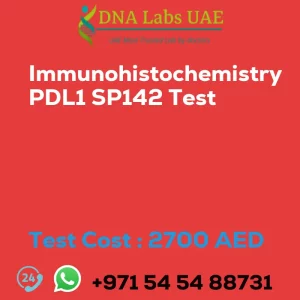FISH – EQUIVOCAL HER2 ERBB2 Test
Test Name: FISH – EQUIVOCAL HER2 ERBB2 Test
Components: Price: 2580.0 AED
Sample Condition: Submit Formalin fixed paraffin embedded tissue block. Ship at room temperature. Tissue block must contain 10% tumor tissue. Duly filled Chromosome & FISH analysis Requisition Form (Form 17) is mandatory.
Report Delivery: 1 week
Method: FISH
Test type: Cancer
Doctor: Oncologist
Test Department: CYTOGENETICS
Pre Test Information: Duly filled Chromosome & FISH analysis Requisition Form (Form 17) is mandatory.
Test Details
The FISH (Fluorescence In Situ Hybridization) test is a diagnostic test used to determine the presence of certain genetic abnormalities, particularly in cancer cells. In the context of breast cancer, the FISH test can be used to evaluate the status of the HER2 gene, also known as ERBB2.
HER2 is a gene that codes for a protein called human epidermal growth factor receptor 2. This protein plays a role in cell growth and division. In some breast cancer cases, there is an overexpression or amplification of the HER2 gene, leading to increased production of the HER2 protein. This is referred to as HER2-positive breast cancer.
The FISH test specifically looks for amplification of the HER2 gene. It involves labeling specific DNA probes with fluorescent molecules and hybridizing them to the patient’s tissue sample. If there is an amplification of the HER2 gene, the probes will bind to the extra copies of the gene, producing a fluorescent signal that can be visualized under a microscope.
The FISH test results can be classified as equivocal when the number of HER2 gene copies is close to the cutoff value for HER2 positivity. This means that it is unclear whether the patient’s cancer is HER2-positive or HER2-negative based on the FISH test alone. In such cases, additional testing may be required to confirm the HER2 status. This can include immunohistochemistry (IHC) testing, which assesses the amount of HER2 protein expression, or other molecular tests.
The final determination of HER2 status is crucial for guiding treatment decisions, as HER2-positive breast cancers are typically more aggressive and require targeted therapies such as Herceptin (trastuzumab).
| Test Name | FISH – EQUIVOCAL HER2 ERBB2 Test |
|---|---|
| Components | |
| Price | 2580.0 AED |
| Sample Condition | Submit Formalin fixed paraffin embedded tissue block. Ship at room temperature. Tissue block must contain 10% tumor tissue. Duly filled Chromosome & FISH analysis Requisition Form (Form 17) is mandatory. |
| Report Delivery | 1 week |
| Method | FISH |
| Test type | Cancer |
| Doctor | Oncologist |
| Test Department: | CYTOGENETICS |
| Pre Test Information | Duly filled Chromosome & FISH analysis Requisition Form (Form 17) is mandatory. |
| Test Details |
The FISH (Fluorescence In Situ Hybridization) test is a diagnostic test used to determine the presence of certain genetic abnormalities, particularly in cancer cells. In the context of breast cancer, the FISH test can be used to evaluate the status of the HER2 gene, also known as ERBB2. HER2 is a gene that codes for a protein called human epidermal growth factor receptor 2. This protein plays a role in cell growth and division. In some breast cancer cases, there is an overexpression or amplification of the HER2 gene, leading to increased production of the HER2 protein. This is referred to as HER2-positive breast cancer. The FISH test specifically looks for amplification of the HER2 gene. It involves labeling specific DNA probes with fluorescent molecules and hybridizing them to the patient’s tissue sample. If there is an amplification of the HER2 gene, the probes will bind to the extra copies of the gene, producing a fluorescent signal that can be visualized under a microscope. The FISH test results can be classified as equivocal when the number of HER2 gene copies is close to the cutoff value for HER2 positivity. This means that it is unclear whether the patient’s cancer is HER2-positive or HER2-negative based on the FISH test alone. In such cases, additional testing may be required to confirm the HER2 status. This can include immunohistochemistry (IHC) testing, which assesses the amount of HER2 protein expression, or other molecular tests. The final determination of HER2 status is crucial for guiding treatment decisions, as HER2-positive breast cancers are typically more aggressive and require targeted therapies such as Herceptin (trastuzumab). |








